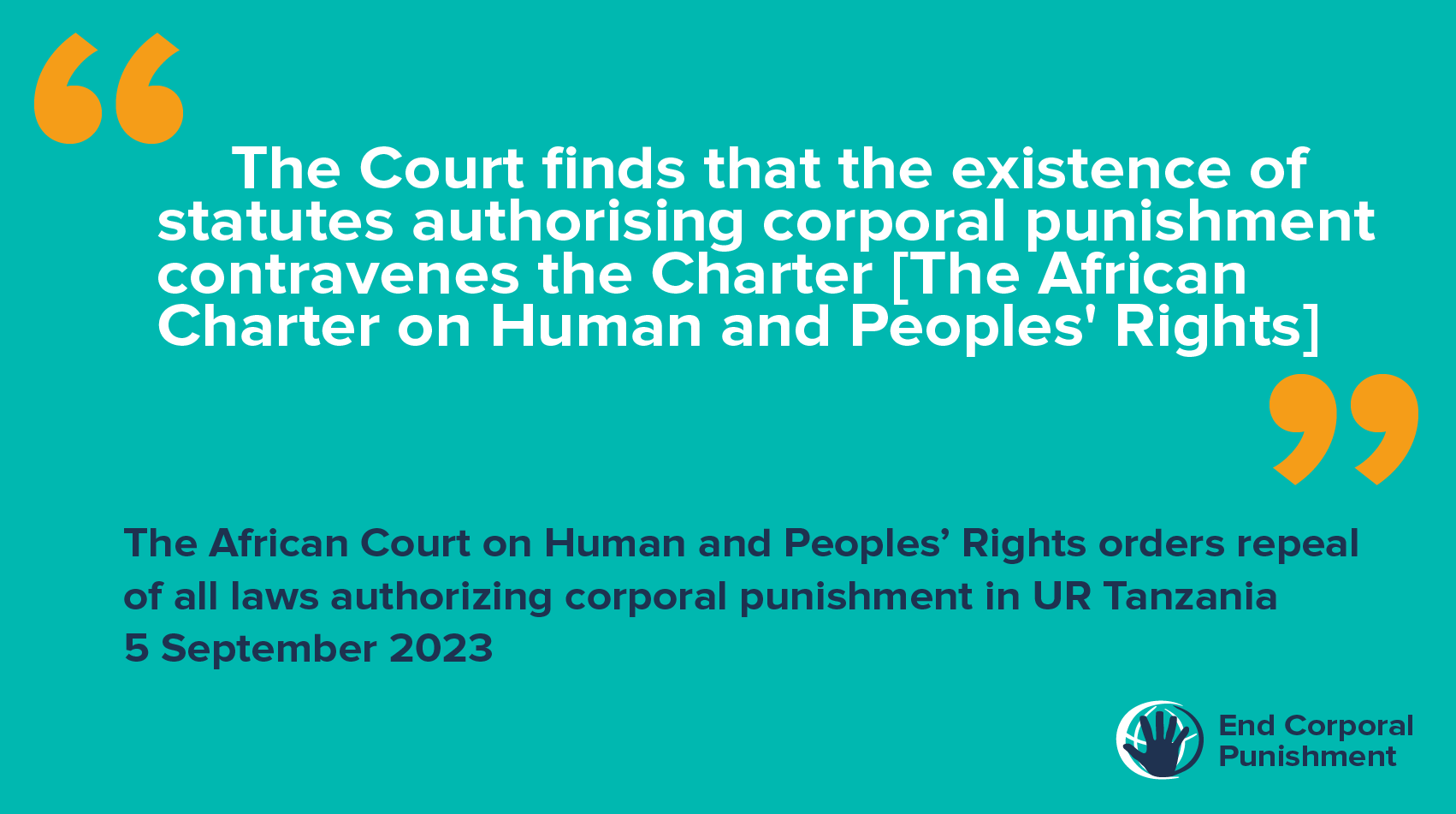The African Court on Human and People’s Rights orders the repeal of all laws authorizing the use of corporal punishment in the United Republic of Tanzania
(Yassin Rashid Maige v. United Republic of Tanzania- Application NO. 018/2017)
On 5 September 2023, in a milestone judgment, the African Court on Human and Peoples’ Rights condemned the existence of legislations allowing the use of corporal punishment in UR Tanzania and ordered their abrogation.
The case concerned an adult man sentenced to thirty years in prison and judicial corporal punishment- in the form of ‘twelve strokes of the cane’.
The complainant argued that the thirty-year prison sentence was excessive and constituted an inhumane and degrading punishment in violation of Article 5 of the African Charter on Human and Peoples’ Rights which prohibits the same. The African Court ruled that the complainant’s sentence to be caned violated his right to dignity as provided under Article 5 of the African Charter on Human and People’s Rights.
Referring to international human rights standards, the African Commission on Human and Peoples’ Rights’ previous decision on judicial corporal punishment (Doebbler v Sudan), as well as its own jurisprudence, the Court ruled that the existence of laws authorizing corporal punishment in UR Tanzania contravened the African Charter on Human and Peoples’ Rights.
The Court argued that the prohibition of cruel, inhuman and degrading treatment or punishment in Article 5 of the Charter is ‘absolute’, with ‘no limitation’ and that:
[it] must be extended to provide the widest possible protection against abuse be it physical or mental.
The Court therefore ordered UR Tanzania to remove corporal punishment from its laws, including but not limited to the Penal Code, Criminal Procedure Code and Corporal Punishment Act, in order to make them compliant with the prohibition of torture, cruel, inhuman or degrading treatment or punishment in Article 5 of the Charter.
Although the case initially concerned judicial corporal punishment of an adult, the Court judgment seems to be applicable to all laws authorizing all corporal punishment of adults and children –in the Respondent State.
It should be noted that UR Tanzania became a Party to the African Charter on Human and Peoples’ Rights in 1986. In 2010, it deposited a ‘Declaration’ accepting the jurisdiction of the African Court to receive applications from Individuals and NGOs. Even though in November 2019, UR Tanzania withdrew its ‘Declaration’, the Court held that the withdrawal had no bearing on pending cases and new cases filed before the withdrawal took effect. In other words, UR Tanzania is still required to implement the Court judgment.
In UR Tanzania, corporal punishment of children is still lawful in the home, some alternative care settings, day care, schools, some penal institutions and as a sentence for crime.
Find more information about the African Court judgment here.
Find out more about the legality of corporal punishment in our country report for UR Tanzania.
Find out more about how regional human rights instruments are being used to make progress in ending corporal punishment.

